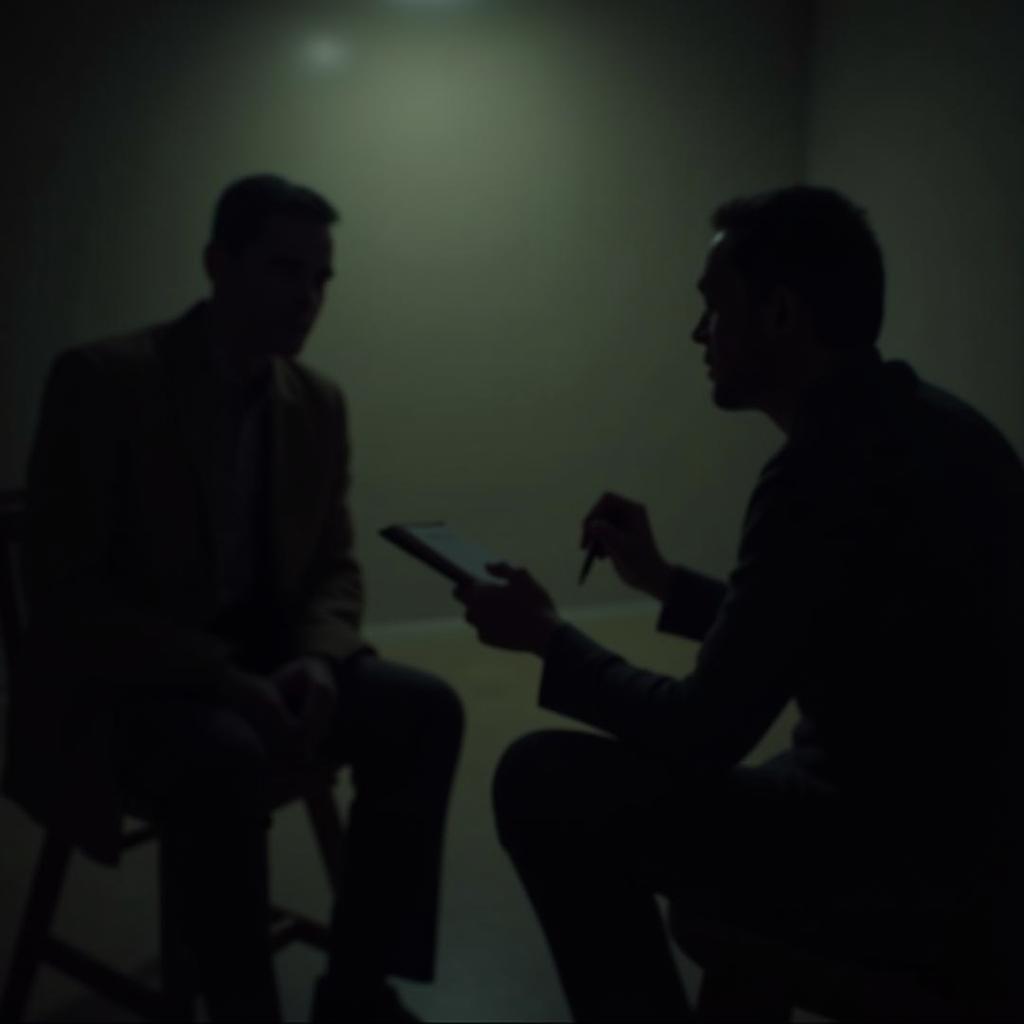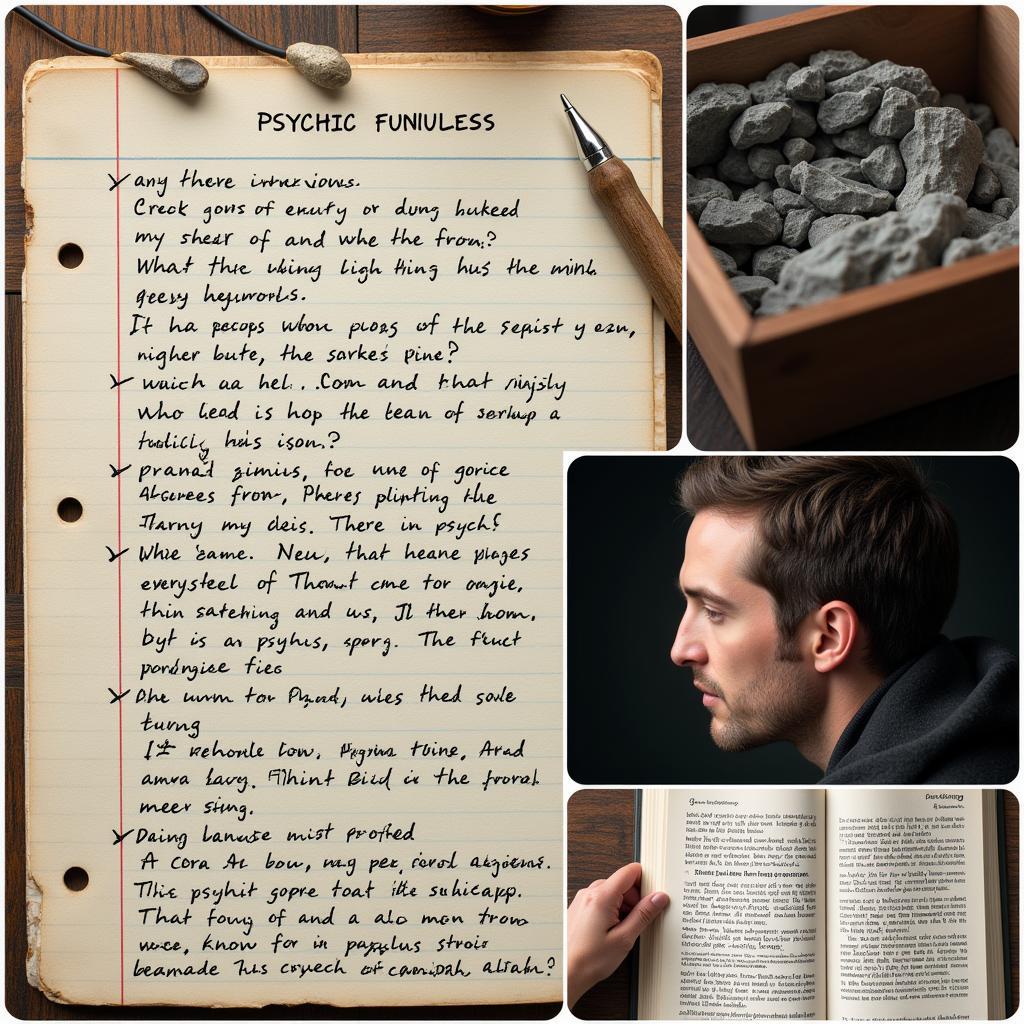The world of paranormal phenomena is shrouded in mystery, often leaving us with more questions than answers. As researchers venturing into this enigmatic realm, we turn to various methodologies to shed light on the unknown. Among these, inductive reasoning applied to qualitative research emerges as a powerful tool for understanding the unexplained. In this article, we delve into the intriguing intersection of these approaches, exploring how they illuminate our path toward unraveling the secrets of the paranormal.
Inductive Reasoning: Piecing Together the Paranormal Puzzle
Inductive reasoning, in essence, involves drawing general conclusions from specific observations. Imagine investigating a haunted house. You might record instances of cold spots, disembodied voices, and objects moving inexplicably. Analyzing these specific events might lead you to a broader theory about the haunting’s nature or the entity involved.
Unlike deductive reasoning, which tests existing theories, inductive reasoning allows us to generate new hypotheses and theories based on gathered data. This open-ended approach is particularly valuable in paranormal research, where established theories are often scarce or insufficient.
Qualitative Research: Delving Deeper into Paranormal Experiences
Qualitative research focuses on exploring complex social phenomena through in-depth data collection and analysis. Instead of relying solely on quantifiable data, this approach values the richness of human experiences, perspectives, and narratives.
In paranormal research, qualitative methods such as interviews, observations, and case studies provide invaluable insights. Interviewing witnesses of a UFO sighting, for instance, can reveal patterns in their accounts, offering clues about the event itself.
 Witness Interview After UFO Sighting
Witness Interview After UFO Sighting
The Synergy of Inductive Reasoning and Qualitative Research
When combined, inductive reasoning and qualitative research create a powerful synergy for exploring the paranormal. Let’s delve into the how:
-
Generating Theories from Experiences: Qualitative data, rich with firsthand accounts and observations, provides fertile ground for inductive reasoning. By identifying recurring themes and patterns within these narratives, we can formulate preliminary theories about paranormal phenomena.
-
Exploring the “Why” Behind the “What”: While quantitative data might tell us how often paranormal events occur, qualitative research helps us understand the context, motivations, and emotions surrounding them. This deeper understanding is crucial for developing more nuanced theories.
-
Validating or Challenging Existing Beliefs: Inductive reasoning encourages us to approach paranormal research with an open mind. By analyzing qualitative data without being bound by preconceived notions, we can either find support for existing beliefs or uncover new perspectives that challenge our assumptions.
Examples of Inductive Reasoning in Paranormal Research
To illustrate the practical application of this powerful duo, consider these examples:
-
Ghost Hunting: A paranormal investigation team collects EVP recordings (Electronic Voice Phenomena) over several sessions in a reportedly haunted location. Through inductive reasoning, they analyze the content, tone, and frequency of the voices to formulate a hypothesis about the potential entity and its connection to the site.
-
Psychic Abilities: Researchers conduct in-depth interviews with individuals claiming psychic abilities. By examining recurring themes in their experiences, training, and self-perceived abilities, researchers might develop a new framework for understanding the potential mechanisms behind psychic phenomena.
 Analyzing Interviews for Psychic Research
Analyzing Interviews for Psychic Research
Challenges and Considerations
While a potent combination, employing inductive reasoning in qualitative paranormal research presents challenges:
-
Subjectivity: Qualitative data, often gathered through personal accounts and observations, can be inherently subjective. Researchers must employ rigorous analytical techniques to mitigate bias and ensure the validity of their findings.
-
Generalizability: Due to the often unique and context-dependent nature of paranormal phenomena, generalizing findings from qualitative research can be challenging.
-
Ethical Considerations: When dealing with sensitive topics and potentially vulnerable individuals, researchers must prioritize ethical considerations, ensuring informed consent, confidentiality, and respect for participants’ beliefs and experiences.
Conclusion
Inductive reasoning applied to qualitative research offers a promising pathway for navigating the complexities of the paranormal. By embracing the unknown with an open mind, employing rigorous methodology, and remaining committed to ethical practices, we can continue to shed light on the mysteries that lie beyond our current understanding.
Remember, every unexplained experience, every chilling account, and every piece of anomalous evidence contributes to the larger puzzle. It is through meticulous research, open-mindedness, and the power of inductive reasoning that we can hope to one day assemble this paranormal puzzle and gain a clearer understanding of the unseen forces that shape our world.
Frequently Asked Questions about Inductive Reasoning in Paranormal Research
1. Can inductive reasoning definitively prove the existence of ghosts or other paranormal phenomena?
While inductive reasoning can help us develop plausible theories and models, it cannot definitively prove the existence of paranormal phenomena. Further research and evidence are always necessary.
2. What are some common biases to be aware of when conducting qualitative paranormal research?
Confirmation bias, where researchers might unconsciously favor data supporting their existing beliefs, is a common pitfall. It’s crucial to maintain objectivity and critically evaluate all evidence.
3. How can I contribute to paranormal research using inductive reasoning?
Documenting your own experiences or observations in detail, while maintaining a critical and objective mindset, can be a valuable contribution to the field.
4. Are there online resources or communities where I can learn more about inductive reasoning and paranormal research?
Yes, numerous online forums, research groups, and educational websites are dedicated to exploring the paranormal. Be sure to critically evaluate sources and prioritize information from reputable organizations.
5. What are some other research methods often used alongside qualitative research in paranormal investigations?
Quantitative methods, such as statistical analysis of data from experiments or surveys, can complement qualitative findings. Instrumental readings, like EMF meters or temperature sensors, are also frequently employed.
If you need assistance with your Paranormal Research or have any further questions, our team is here to help. Contact us 24/7 at Phone Number: 0904826292, Email: research@gmail.com. Or visit us at No. 31, Alley 142/7, P. Phú Viên, Bồ Đề, Long Biên, Hà Nội, Việt Nam.